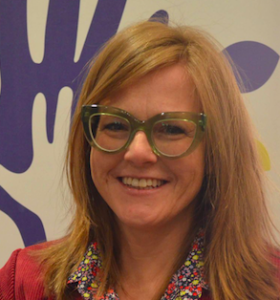
The Urgency of Change in Teaching Theology and Religion
I stopped dead in my tracks. I had been enjoying an early-Autumn walk, crunching my way through fallen leaves, while listening to a Wabash Center podcast in which Dr. Nancy Lynne Westfield and Rev. Dr. Steed Davidson were discussing how to “Future Proof Your Career.”
I stopped walking when I heard Dr. Westfield declare: “I guarantee you, you will not have the career your mentor had. That career is over.” Later she remarked, “We need to adapt.”
I didn’t stop walking because I was angry about having to change my pedagogy. To be honest, I enjoy that sort of thing. Neither did I stop walking because I was shocked. I know that small private liberal arts institutions and seminaries are facing enrollment challenges now, perhaps more than ever. And, for this reason, new adaptions and academic-adjacent careers are a reality for those of us teaching theology and religion, especially those of us who are in the beginning or middle stages of our career trajectories.
I stopped walking because I was stunned by the clear and honest way Dr. Westfield had articulated something I had been thinking about a lot—and to be honest, wrestling with—in a couple of different ways in my current institution.
I teach in the Theology department at a fairly small, private Catholic institution. Most of the students we teach register for our courses to fulfill a General Education requirement in the Catholic Intellectual Tradition. This context is quite different from one in which I formerly taught, comprised of students pursuing a theology degree for professional ministry. My current colleagues and I have been reflecting on the purpose of our department and its course offerings within our institution; in doing so, we have discussed how we primarily serve the General Education curriculum, rather than a curriculum designed for theology majors. While we have several majors graduate from our program every year, we need to make sure we are serving not only them, but also the bulk of the students in our classes who are not theology majors.
Of course, a curriculum designed for majors needs to cover a range of diverse areas of study within its discipline, equipping students with the knowledge and skills necessary to pursue a career or further studies in its area. Content is critical. Certain topics in the discipline must be covered.
However, in a curriculum designed for students taking a couple of courses in theology as a general education requirement, specific areas of content are less critical. Instead, courses are meant to introduce students to a discipline—not by covering all of its topics in a preliminary way—but by teaching students how to use the approach of the discipline, or to think with its lens. For example, in a content approach, I construct a course around the question: “What do students need to know about Christianity?” I then choose a textbook that covers these areas of knowledge that I have deemed necessary. The methodological approach, instead, asks: “How will I teach students to think theologically?” Often, when the course is a requirement for their graduation, I have to ask the additional question: “How will I get students to understand that learning to think this way is relevant to their lives?”
One way our department has done this is to revise the introductory theology courses we teach. Rather than asking our students to fulfill their first theology course in an introduction to Scripture or Systematics, we designed a course that introduces students to Christian scriptures and theological disciplines through the lens of justice.
This change in focus made us adapt the way we teach. Rather than simply teaching only about our content areas of expertise, we are teaching in ways that engage the contemporary questions our students (most of whom may be categorized as Gen Z) find relevant.
This change, in my experience, has increased student engagement. For example, not many of my students—especially those who are not majors or care much about Christianity—find a unit on creation in systematics very interesting, at least on a personal level. Their lives aren’t invested in the doctrine of creation ex-nihilo and learning about pantheism and panentheism. However, if I introduce them to Christian scriptures and theology on creation with a primary focus on global warming, they are engaged almost instantaneously. This focus addresses something the world needs right now.
More than increased levels of engagement, though, this new approach introduces students to a practice of applying theology to contemporary concerns. My hope is that by the time they leave my class, when religious ideas and concerns show up in contemporary events, they know how to evaluate and analyze them. How is scripture being used at an anti-immigration protest, for example?
What we have done in our department resonates with a point Dr. Davidson made in the podcast. He mentioned someone who wanted to research gazelles in antiquity. This person eventually became interested in contemporary animal rights movements and wanted to bring that into their work, but the individual’s dissertation committee advised against it. (Most likely because the committee didn’t know how to direct it in that way). The point is that the questions in which the dissertation committee members are interested are not the same questions that those with future careers will need be to ready to answer, in order to thrive.
The other way I (and some of my departmental colleagues) have been thinking about this question is in our upper-level courses. I’ll be honest, I’m attached to mine. I have a 300-level course on “Medieval Women Mystics” that I love because I get to introduce students to my favorite area of research and expertise. I’m beginning to understand, however, that it’s probably time to contemporize this course as well. It’s time to reframe this course around important questions of our time. Stay tuned.
Leave a Reply